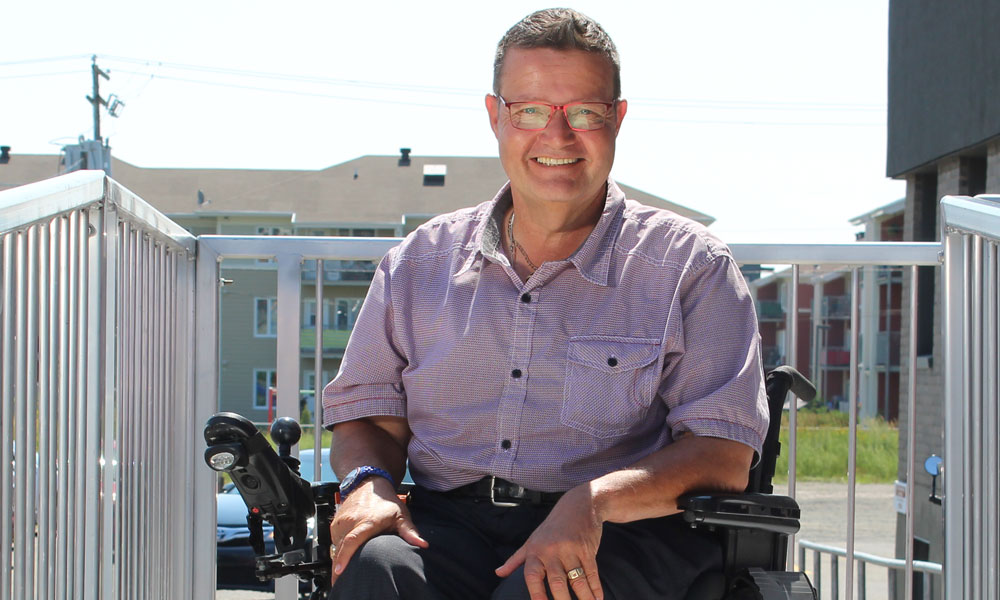Mr. Raynald Pelletier, member of the Conseil d’administration de l’arrondissement Vanier-Les Rivières, in Quebec City and president of CAPVISH (Comité d’action des personnes vivant des situations de handicap), which is very active in the defense and promotion of the rights of people of reduced mobility in the region of Quebec.
He has very generously agreed to answer our questions and share his experiences.

“I decided that happiness would enter my home and never leave!”
Raynald Pelletier
1- Have you always been in a wheelchair?
No, I could walk for the first 21 years of my life. My physical condition deteriorated following numerous surgical interventions.
2- Being in a wheelchair, what are the main constraints that you encounter on a daily basis?
I’ve never seen myself as handicapped, but rather as someone living in a handicapped situation, which is very different. It’s life that is maladapted: sidewalks that are 10cm high, public washrooms…like in restaurants for example. If you call ahead to ask if the washroom has been adapted, you realize that people don’t really know the difference between accessible and adapted. Just because you can access the washroom it doesn’t mean you can use it because the soap dispenser, the hand dryer, the height of the sink, and other items have not been adapted to the handicap situation. Accessibility is a real problem!
3- What are the implications of being in a wheelchair in your professional life?
I’ve worked in many different places over the course of my lifetime. But I’ve mainly worked for community organizations that help to integrate disabled people in the province of Quebec. Most notably, I’ve been working for CAPVISH for 20 years, and I became its president 5 years ago. I don’t think my disability has posed any particular problem in my professional life. It’s a question of attitude. if you regard your wheelchair as a problem, others will see it that way too; if you don’t make it an issue, they won’t either.
4- Would you say that your employers have been accommodating?
Yes! As I said, I always had a positive attitude and when you are nice and kind to others, they are more inclined to help you.
5- Has your disability held you back in your career?
Yes, but not because of my morale or will. I have undergone 51 surgeries over the course of my life. No employer would accept 2 to 3-month absences per year; it’s only logical.
6- The world is inadequately accessible and adapted to the disabled. In your opinion, how can this situation be improved?
People are quite unaware. For example, architects should always conform to the universal accessibility norms. It would be an important step for all new buildings to be adapted.
For older buildings, it’s not as easy due to the preservation of heritage sites. However, with a concerted effort, we could improve things considerably.
7-Do you think there are certain myths upheld about people of reduced mobility?
They are also often thought to lack autonomy. I think that a lot of disabled people don’t realize their full potential, for various reasons. That’s why others believe that they are inadequate in many aspects of their lives, which is far from being the case!
We thank Mr. Pelletier for his openness and transparency. It is surely a safe bet that an attitude like his helps people to see beyond the wheelchair and truly try to get to know the person sitting in it…without any preconceptions.